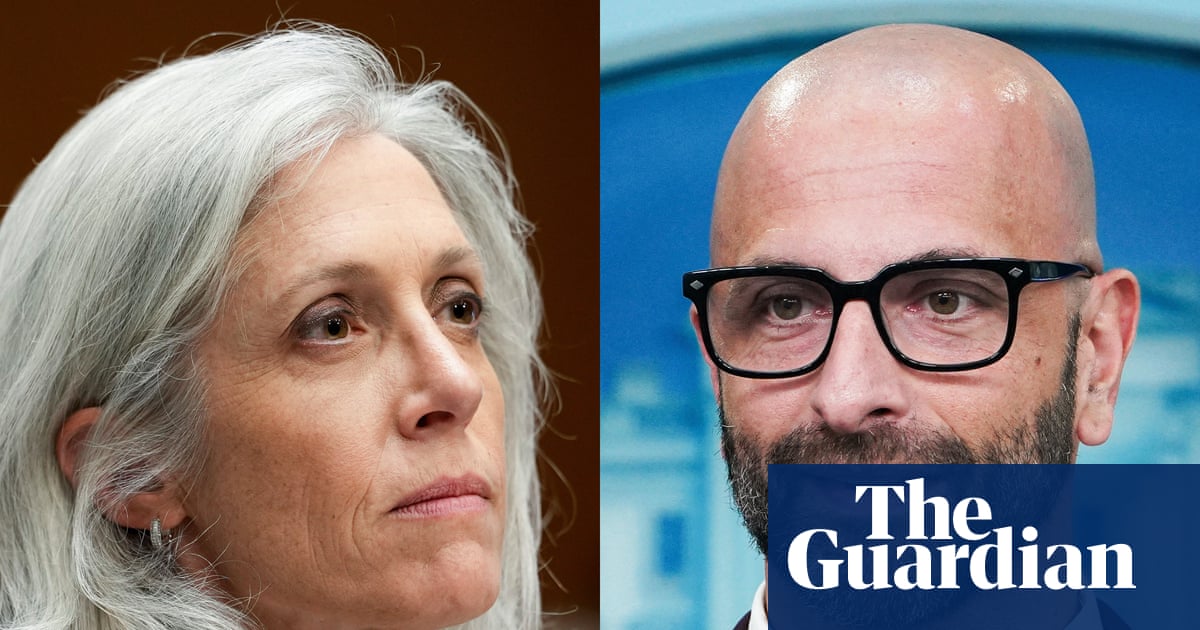The Departure of Susan Monarez from the CDC: A Catalyst for Change
A significant controversy is brewing over the dismissal of Susan Monarez, the recently appointed director of the U.S. Centers for Disease Control and Prevention (CDC). Her lawyers have firmly stated that she will remain in her position unless confronted directly by the president. This standoff highlights the complexities of her recent removal, further intensifying the debate around political influence in public health.
Dismissal Sparks Outrage
Monarez’s official removal came late on Wednesday after a contentious exchange with Robert F. Kennedy Jr., the U.S. health secretary, who initiated the attempt to oust her. The situation escalated quickly, prompting her legal team to assert that only the president possesses the authority to make such a decision. Unlike her predecessors, Monarez was confirmed by the Senate, granting her a unique standing within the agency, which complicates Kennedy’s actions.
As an expert in infectious diseases, Monarez joined the CDC as principal deputy director in January 2025 and was sworn in as the agency’s 21st director on July 31. Notably, she was the first director without a medical degree and the first confirmed under new legislation passed in 2023. Her tenure, however, was short-lived and marred by disagreements over vaccine policies—issues that are particularly critical in today’s public health landscape.
Repercussions Within the CDC
Monarez’s dismissal not only affected her but also led to the resignation of four senior CDC leaders, underscoring a pivotal moment in the agency’s trajectory. These senior officials departed, seemingly out of frustration with Kennedy’s management style and his approach to vaccines.
Key Figures in the CDC Shakeup
Here’s a closer look at some of the high-profile CDC officials involved in this unfolding drama:
-
Susan Monarez
- Position: Director, CDC
- Background: A microbiologist who earned multiple degrees from the University of Wisconsin, Monarez took office as the first director confirmed under the new law, emphasizing a shift in leadership philosophy at the agency. Her recent dismissal was attributed to conflicts over vaccination strategies.
-
Debra Houry
- Former Role: Chief Medical Officer and Deputy Director for Program and Science
- Experience: Holding degrees from Emory and Tulane University, Houry previously operated as an emergency doctor. She resigned in August 2025, citing vaccine misinformation and political meddling as primary reasons for her departure.
-
Demetre Daskalakis
- Former Role: Director, National Center for Immunization and Respiratory Diseases
- Expertise: Known for his work in HIV prevention, Daskalakis left on August 28, published a letter critical of political interference within the CDC, highlighting concerns about data integrity.
-
Daniel Jernigan
- Former Role: Director, National Center for Emerging and Zoonotic Infectious Diseases
- Legacy: With a long-standing career at the CDC since 1994, Jernigan’s contributions to disease preparedness were substantial. He stepped down amidst fears of increased political influence impacting the integrity of scientific research.
- Jennifer Layden
- Former Role: Director, Office of Public Health Data, Science, Technology
- Specialization: Focusing on modernizing public health data systems, Layden also resigned, cautioning against the adverse effects of political intrusion on data-driven decision-making.
The Climate of Uncertainty
The unfolding drama reflects a much larger debate about the role of politics in public health. As vaccine misinformation becomes a contentious issue, the dynamics within the CDC represent not only a clash of personalities but a critical moment for the future of the agency. The departure of such experienced figures raises concerns about the integrity and efficacy of public health policies at a time when science is desperately needed.
In essence, the controversy surrounding Susan Monarez’s dismissal serves as a flashpoint in the ongoing dialogue about how public health agencies should navigate the waters of political influence while striving to maintain scientific credibility. As events continue to unfold, the implications for the CDC, public health response, and the overall safety of the population remain to be seen.



